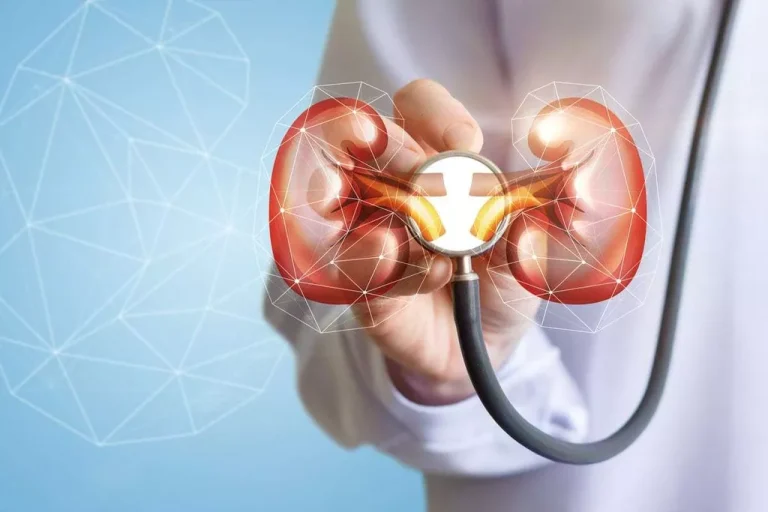How Does Alcohol Consumption Affect the Immune System?

By Geralyn Dexter, PhD, LMHCDexter has a doctorate in psychology and is a licensed mental health counselor with a focus on suicidal ideation, self-harm, and mood disorders. While you may experience euphoria or relaxation at first, in the long run, alcohol affects neurotransmitters, which can lead to changes in your thoughts, moods, and behavior. Drinking alcohol can influence your psychological functioning and well-being. Alcohol also causes damage to nerves and pathways, which disrupts communication between essential organs and bodily functions.
Effects on Circulating Immunoglobulin Levels
Lowered RAS levels in turn induce dysregulation of the mitochondria (Kimura et al. 2005) and enhance production of reactive oxygen species (ROS) that can damage various molecules in the cells (Iuchi et al. 2003). Naïve human T cells produce low levels of VDR, but expression is increased to moderate levels in activated T cells (Irvin et al. 2000). Human T cells incubated in vitro with variable concentrations of ethanol (0, 10, 25, and 50mM for 24 hours) showed a reduced expression of the VDR, accompanied by increased expression of RAS and ROS as well as increased T-cell death (Rehman et al. 2013).

The Impact of Alcohol on Your Body

Past data shows binge drinking can have a massive effect on the immune system. One study found that people who got less than 7 hours of sleep were nearly three times more likely to develop a cold compared with those who got 8 or more hours of sleep. According to the Cleveland Clinic, once you take a sip of alcohol, your body prioritizes breaking down alcohol over several other bodily functions. The body doesn’t have a way to store alcohol like it does with carbohydrates and fats, so it has to immediately send it to the liver, where it’s metabolized. “With COVID-19, alcohol is likely to interfere with an individual’s ability to clear SARS-CoV-2 and cause people to suffer worse outcomes, including ARDS, which commonly results in death,” Edelman said. Alcohol has been flying off the shelves as people try to combat boredom during lockdown, with some reports estimating that alcoholic beverage sales surged by 55 percent toward the end of March.

How Alcohol Affects the Immune System
- Reduce stress Chronic stress weakens the immune system because the body is in a constant state of “alert”.
- This is because people who smoke require additional antioxidants to combat the negative consequences of smoking.
- And prolonged alcohol use can lead to mental health conditions like anxiety and depression.
- In vivo studies in humans confirmed these observations, demonstrating that binge drinking (i.e., consuming 5 to 7 drinks within 90 to 120 minutes) promoted T-cell apoptosis and decreased Bcl-2 expression (Kapasi et al. 2003).
- Minor changes one day at a time can make a big difference in your health.
This imbalance can lead to a “leaky gut,” where harmful substances enter the bloodstream, triggering immune responses and potentially leading to chronic inflammation. In low to moderate alcohol consumption, antioxidants may provide some cardiovascular benefits. Moderate drinking is defined as up to one drink per day for people assigned female at birthday and up to two drinks per day for people assigned male at birth, per the NIAAA. Each of these events is mediated by the activation of nuclear factor kappa B (NFκB), which can be inhibited by alcohol consumption and thus prevent the production of pro-inflammatory cytokines.
Short-term effects of alcohol on the immune system
- Things like trouble concentration, slow reflexes and sensitivity to bright lights and loud sounds are standard signs of a hangover, and evidence of alcohol’s effects on your brain.
- “Although there is no evidence that moderate drinking harms the immune system, it is better to stick to wine or beer since these have lower percent alcohol,” Dasgupta says.
- Similarly, C57BL6 mice fed a liquid diet in which ethanol provided 27 percent of the total calories generated significantly decreased DTH responses to a T-cell–dependent antigen (i.e., sheep red blood cells) (Jayasinghe et al. 1992).
- Thus, several miRNAs themselves are regulated epigenetically but also are capable of targeting genes that control epigenetic pathways (e.g., polycomb group-related genes and histone deacetylase).
- Not only does the immune system mediate alcohol-related injury and illness, but a growing body of literature also indicates that immune signaling in the brain may contribute to alcohol use disorder.
Additional analyses demonstrated that ethanol exposure promoted apoptosis by inducing breaks in the DNA of the T cells. This damage to the DNA most likely was mediated by ROS generation in response to RAS activation. Treatment with a compound that activates the VDR (i.e., a VDR agonist) restored the T cell’s VDR expression, down-regulated RAS expression as well can alcohol lower your immune system as ROS generation, and thus preserved T-cell survival (Rehman et al. 2013). Activated T cells normally undergo apoptosis if they receive a second activation stimulus within a short interval.
Cancer risk
Fruit and vegetables contain vitamins, minerals and antioxidants that strengthen the immune system. Vitamin C, found in citrus fruits, peppers and broccoli, and zinc, found in nuts, seeds and wholegrain products, are particularly important. Opsonization is a process by which a pathogen or other antigen is covered with antibodies and thereby marked for ingestion and destruction by other immune cells (i.e., phagocytic cells). Mark Hutchinson of the University of Adelaide in South Australia says that the results tally with post-mortem data showing that chronic drinkers have less immune chemicals in their blood than normal. Szabo says heavy drinkers should beware of damaging their immune systems.
How Alcohol Can Affect Your Immune System

The molecular mechanisms underlying ethanol’s impact on the adaptive immune system remain poorly understood. Studies over the last 30 years have clearly demonstrated that chronic ethanol abuse impairs the functions of both T cells and B cells. Chronic alcohol consumption results in lymphopenia with a loss in circulating T cells and B cells. The decrease in T cells is accompanied by increased homeostatic proliferation, which in turn leads to increased T-cell differentiation, activation, and conversion to the memory phenotype. Impairment in T-cell recruitment also was observed in mouse models of chronic alcohol exposure.

Gut health
- The researchers reported significant reductions in the TNF-α levels three and six hours after the alcohol consumption.
- Thus, maternal alcohol consumption during pregnancy (12 mg/week for most of the pregnancy) increased IgE levels in the umbilical cord blood of the infants (Bjerke et al. 1994).
- From the first sip, alcohol impacts the body—even if you don’t realize it.
- “Individuals vary in their cardiovascular responses to alcohol, and even low levels of drinking can increase the risk of hypertension and heart disease for some people,” she adds.
- 25.8% of people classified their recent consumption habits as binge drinking (excessive drinking in a defined amount of time).
The reduced DTH response and accompanying decrease in IL-12 and IFN-γ cytokine production are thought to result in part from ethanol-mediated depletion of the antioxidant glutathione in antigen-presenting cells (Peterson et al. 1998). These disruptions to the composition of the gut microbiota and to gut barrier function have important implications beyond the intestinal system. Infection with viral hepatitis accelerates the progression of ALD, and end-stage liver disease from viral hepatitis, together with ALD, is the main reason for liver transplantations in the United States. The article by Dolganiuc in this issue explores the synergistic effects of alcohol and hepatitis viruses on the progression of liver disease as well as alcohol consumption’s injurious effect on liver antiviral immunity. Mandrekar and Ju contribute an article that homes in on the role of macrophages in ALD development, including recent insights into the origin, heterogeneity, and plasticity of macrophages in liver disease and the signaling mediators involved in their activation and accumulation. The mechanisms by which moderate alcohol consumption might exert these beneficial effects are only beginning to emerge.

0 Comments